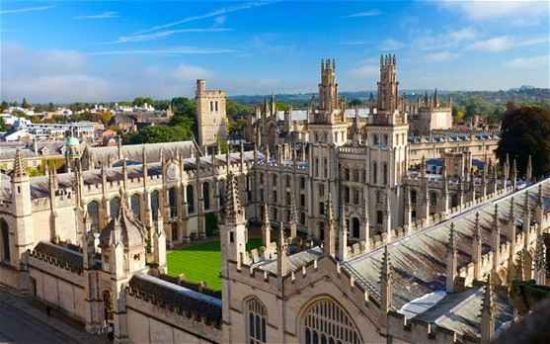双语:报告称牛津招“特别生”挣钱丢人
 Oxford University risks undermining its reputation by accepting wealthy foreign students with poor grades for “purely commercial reasons”, an internal report warns.
Oxford University risks undermining its reputation by accepting wealthy foreign students with poor grades for “purely commercial reasons”, an internal report warns.近期发布的一份内部调查报告指出,牛津大学通过招收有钱的“特别生”来谋取商业利益的行为会有损学校的声誉。牛津大学各学院招收的“特别生”平均成绩普遍都低于正式的牛津大学学生,他们每学期支付的学费高达13000英镑(约合人民币12.4万元),而英国学生每年的学费最高只有9000英镑。报告指出,牛津大学每年招收的特别生多达300人,通常都是由第三方机构进行招生。这些学生没有资格取得牛津大学的学位,但可以在简历中表明他们曾在牛津大学学习。报告指出,不清楚真相的人很难分辨这些特别生跟牛津正式学生的区别,而这些特别生项目看起来更像是纯粹的商业交易。
Oxford University risks undermining its reputation by accepting wealthy foreign students with poor grades for “purely commercial reasons”, an internal report warns.
The “associate students”, who generally have lower average grades than a typical Oxford undergraduate, pay as much as £13,000 a term and can stay for up to a year。
Although the students are not officially part of the university, senior figures said they “pose severe reputational risk” because their academic standards are “often low”。
The report said that colleges, which are independent of the university and are free to set their own admissions policies, granted them admission for “purely commercial” reasons. The inquiry, prompted by concerns about the number of associate students and their links with Oxford, was held by a working group chaired by Prof Paul Slack, a former pro-vice-chancellor at Oxford。
Its findings were published two weeks after universities were accused of using foreign students as “cash cows” by charging them as much as £35,000 a year for a degree. British students are currently charged a maximum of £9,000.
As many as 300 associate students are admitted to Oxford each year, usually through a third-party organisation which then makes a payment to the college。
The Washington International Studies Council (WISC), which claims to be the largest overseas study programme at Oxford, charges $20,900 (£13,430) for a 13-week term。
About £4,000 of that total is paid to the Oxford college, and students can attend for up to a year. WISC offers the candidates, who are mostly American students, entry to Trinity College, Christ Church, New College and Magdalen。
Associate students do not have to demonstrate academic standards as high as students admitted through the standard intake。
The website states that the students are degree candidates of their home college and not of Oxford。
However, it says the students are “taught the same way and to the same standard by Oxford tutors”。
The students can refer to being educated at Oxford on their CVs。
In a report published recently by the central university, senior Oxford figures said they feared it would be “difficult for the uninformed reader to detect … that there is any significant difference in the experience of its students coming to Oxford for a limited period time from that of a full-time matriculated undergraduate”。
Official figures showed colleges continued to recruit many candidates。
In the academic year 2010-11, Christ Church admitted 48 associate students, receiving more than £50,000 in fees。
St Catherine’s, which is not included in the WISC programme, took in 33.
Referring to the programme, the report said: “Although there is some assessment of their GPA [Grade Point Average] scores before they are admitted by each college, the transaction seems to be one of a purely commercial kind。”
Despite the central university’s apparent dislike of the programme, the report said it had received more than £1 million in library fees since 2009 from associate students wanting admission to the Bodleian。
(Source: Telegraph.co.uk)
- 牛津剑桥独霸英大学排名榜时代或将结束2013-08-26 15:11
- “剑桥牛津列世界大学排名前列”2013-08-26 12:12
- 牛津大学报考指南 比私立高校更“划算”2013-08-13 10:11
- 英国大学生读书卖力度调查:剑桥牛津拔头筹2013-08-05 11:04
- 留学生揭秘:最高学府牛津大学的饭局什么样2013-08-02 08:22
- 牛津大学研究:数学不好?电击一下(双语)2013-05-20 11:07
